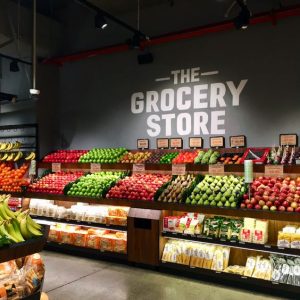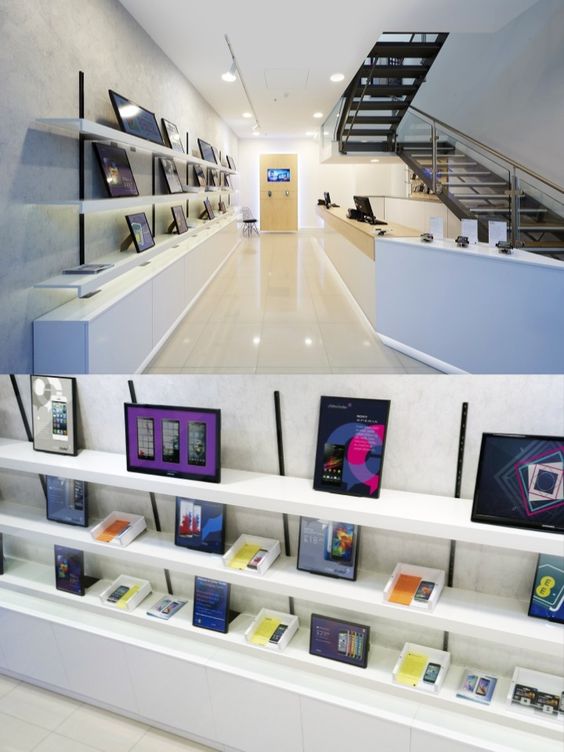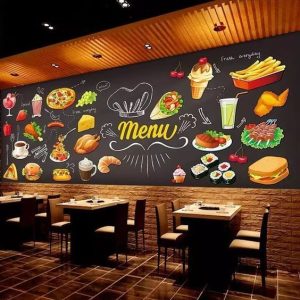
A MizukiWave POS (Point of Sale) system is a combination of hardware and software used by businesses to manage sales transactions. It is the place where customers make payments for goods or services. The Mizukiwave POS system handles various functions like processing payments, tracking sales, and managing inventory.
The hardware components typically include a computer or tablet, a normal monitor or touchscreen monitor, a barcode scanner, a receipt printer, a cash drawer, and a payment terminal for electronic payments, credit and debit cards, and customer displays for transaction transparency.
The software component records sales data, updates inventory levels in real-time, generates sales reports, and can manage customer information, loyalty programs, and many more. This software helps businesses make informed decisions by providing detailed insights into sales trends and inventory status.
MizukiWave POS Systems are essential for businesses like Grocery Stores, Supermarkets, Retail Stores, Restaurants, and many types of businesses because they speed up the checkout process, reduce errors, improve customer service, and streamline operations. By automating many tasks, a MizukiWave POS system saves time and effort, allowing businesses to focus more on customer satisfaction and growth.
Components of a MizukiWave POS System
A typical MizukiWave POS system consists of several key components :
Hardware:
- POS Terminal: The central unit of the POS system, usually a computer or tablet, runs the POS software that manages sales transactions, inventory, and customer data.
- Touchscreen Monitor: A display screen that allows cashiers to interact with the POS software through touch commands, streamlining the checkout process.
- Barcode Scanner: A device used to scan product barcodes, quickly and accurately inputting product information into the POS system.
- Receipt Printer: A printer that produces paper receipts for customers, detailing the items purchased, prices, and transaction totals.
- Cash Drawer: A secure compartment that stores cash received from sales. It typically opens automatically when a transaction is completed.
- Payment Terminal: A device that processes electronic payments, credit and debit card payments, including EMV chip cards, contactless payments, and mobile wallets.
- Customer Display: A screen facing the customer that shows transaction details, ensuring transparency and accuracy during the checkout process.
- Keyboard and Mouse: In some setups, a traditional keyboard and mouse are used for data entry and navigation within the POS system.
Software:
- Sales Processing: Handles transactions, calculates totals, and processes payments.
- Inventory Management: Tracks stock levels, alerts for low inventory, and manages reordering.
- Customer Relationship Management (CRM): Stores customer information, purchase history, and preferences.
- Reporting and Analytics: Generate sales reports, analyses trends, and provides insights for decision-making.
- And many more…
What does a typical MizukiWave POS hardware setup look like

Benefits of using a MizukiWave POS (Point of Sale) system:
- Streamlined Transactions: A POS system speeds up the checkout process, reducing wait times and improving customer satisfaction.
- Accurate Sales Tracking: It accurately records each transaction, reducing human errors associated with manual entry.
- Real-Time Inventory Management: POS systems automatically update inventory levels in real time, helping prevent overstocking or stockouts.
- Enhanced Customer Experience: Quick and efficient transactions, personalised service, and loyalty programs contribute to a better customer experience.
- Detailed Sales Reports: Generate comprehensive reports on sales, profits, and trends, aiding in informed decision-making.
- Improved Employee Management: Track employee sales performance, manage schedules, and monitor work hours efficiently.
- Simplified Accounting: Integrate with accounting software to streamline financial reporting and tax preparation.
- Customer Relationship Management (CRM): Store customer information, purchase history, and preferences to personalize marketing and improve retention.
- Promotions and Discounts: Easily create and manage promotional offers, discounts, and loyalty programs to attract and retain customers.
- Multi-Channel Sales Integration: Integrate online and in-store sales, providing a seamless shopping experience for customers.
- Mobile POS Capabilities: Process transactions anywhere in the store or on the go, improving flexibility and customer service.
- Secure Payment Processing: Ensure secure and compliant payment processing, protecting customer data and reducing fraud.
- Inventory Forecasting: Use historical data to predict future inventory needs, optimise stock levels, and reduce waste.
- Employee Training: User-friendly interfaces and training modules make it easier to onboard new employees quickly.
- Reduced Operational Costs: Automate various tasks such as inventory management and sales tracking, reducing labour costs and increasing efficiency.
- Scalability: Easily scale the system as your business grows, adding new locations, registers, or features as needed.
- Enhanced Order Management: Track orders from placement to delivery, ensuring timely and accurate fulfilment.
- Supplier Management: Manage supplier information, purchase orders, and deliveries efficiently, ensuring a smooth supply chain.
- Improved Data Accuracy: Minimise manual errors with automated data entry, ensuring accurate records for all transactions
- Customer Insights and Analytics: Analyse customer behaviour and preferences, helping to tailor marketing strategies and improve product offerings.
key features of a modern MizukiWave POS (Point of Sale) System
Sales Processing
Efficiently handles transactions, calculates totals, and processes payments, including cash, credit/debit cards, and digital wallets.
Inventory Management
Tracks stock levels in real-time, sets reorder points and generates alerts for low inventory. Supports barcoding and stock transfers.
Reporting and Analytics
Generates detailed sales reports, profit margins, employee performance, and inventory trends, helping in data-driven decision-making.
Employee Management
Manages employee schedules, tracks hours worked, and monitors sales performance, helping to optimise labour costs and productivity.
Multi-Channel Integration
Integrates with e-commerce platforms to synchronise online and in-store sales, providing a seamless shopping experience.
Mobile POS
Enables transactions to be processed on tablets or smartphones, offering flexibility for mobile checkouts and sales at events or pop-up shops.
Order Management
Tracks orders from placement to delivery, including special orders, layaways, and backorders.
Supplier Management
Manages supplier information, purchase orders, and deliveries, facilitating efficient restocking and supply chain management.
Multi-Store Management
Supports operations across multiple locations, centralising data and management functions for easier oversight and coordination.
User Permissions and Security
Configures user roles and permissions, ensuring that sensitive information and functions are only accessible to authorised personnel.
Kitchen Display Systems (KDS)
For restaurants, it integrates with kitchen display systems to streamline order processing and improve communication between the front and back of the house.
Multi-language and Multi-Currency Support
Supports multiple languages and currencies, making it ideal for businesses with an international clientele.
Integrated Marketing Tools
Incorporates email and SMS marketing tools to send promotions, updates, and reminders directly to customers.
Table Management
For restaurants, it provides table management features including table assignments and order tracking.
Touchscreen Interface
Supports touchscreen functionality for faster, more intuitive operation.
Product Management
- Product Types – Supports standard, combo, and digital products.
- Bulk Operations – Allows for bulk updates and quantity adjustments.
- Import/Export – Import products via CSV and export product data for external use.
- Variants and Attributes – Manage different variants and attributes for products.
Quotations and Orders
- Quotation Management – Create, manage, and convert quotations to sales or purchase orders.
- PDF Downloads – Download quotations and orders as PDF documents.
- Order Tracking – Track the status and fulfilment of orders.
Warehouse (Shops) Management
- Multiple Warehouses (Shops) – Manage inventory across multiple warehouses (Shops) locations.
- Stock Transfers – Transfer stock between warehouses (Shops) with detailed tracking and CSV import/export options.
- Stock Alerts – Set alerts for low stock and product expiry.
These features collectively enable businesses to operate more efficiently, provide better customer service, and make informed decisions that drive growth and profitability.
Why should the business have a MizukiWave POS System?
A POS system offers a wide range of benefits that can enhance various aspects of a business, from improving operational efficiency and accuracy to enhancing customer satisfaction and loyalty. By leveraging these advantages, businesses can streamline their processes, reduce costs, and ultimately drive growth and profitability. Whether you run a small boutique or a large retail chain, investing in a robust POS system can provide significant long-term benefits.
What kind of businesses use MizukiWave POS systems?
A MizukiWave POS (Point of Sale) system is a versatile tool that can be utilized by a wide range of businesses across various industries. Here are some types of businesses that can benefit from implementing a POS system:
Grocery Stores and Supermarkets

A MizukiWave POS (Point of Sale) system offers numerous benefits to grocery stores and supermarkets, enhancing efficiency and customer satisfaction:
Streamlined Checkout Process:
- – Quick Transactions: The MizukiWave POS system enhances efficiency by scanning items and processing payments rapidly, minimizing wait times for customers.
- – Multiple Payment Options: It supports various payment methods, including cash, credit/debit cards, and digital wallets, offering convenience to customers and improving their shopping experience.
Example: During peak hours, a supermarket efficiently handles large customer volumes, minimizing lines and improving satisfaction.
Real-Time Inventory Management:
- – Accurate Stock Levels: The system updates inventory levels automatically with each sale, ensuring accurate stock information and reducing manual errors.
- – Automated Reordering: It generates alerts when stock levels are low, prompting timely reordering and preventing both stockouts and overstock situations.
Example: A grocery store avoids running out of essential items, like milk, by receiving automated restock alerts.
Enhanced Customer Experience:
- – Loyalty Programs: The POS system can integrate loyalty programs, rewarding customers for their purchases and encouraging repeat business.
- – Personalized Promotions: It tracks customer purchase history and preferences, enabling personalized promotions and discounts that enhance customer satisfaction.
Example: A supermarket can offer personalized discounts on frequently bought items, increasing customer loyalty and driving sales.
Detailed Sales Reporting:
- – Comprehensive Reports: The system provides detailed sales reports that give insights into sales trends, peak shopping hours, and best-selling products.
- – Data-Driven Decisions: These insights help store managers make informed decisions about inventory management, staffing, and promotional strategies.
Example: A grocery store can analyze sales data to determine the best times to schedule more staff or launch new promotions, optimizing operations and increasing profitability.
Secure Payment Processing:
- – Data Protection: Ensures secure and compliant payment processing, protecting customer data and reducing the risk of fraud.
- – Access Control: Offers user permissions and security features to control access to sensitive information.
Example: Secure payment processing builds customer trust in data security, encouraging repeat business.
Implementing a MizukiWave POS system in grocery stores and supermarkets significantly enhances operational efficiency, improves customer satisfaction, and provides valuable insights for better business management. This technology is crucial for maintaining competitiveness in the fast-paced retail environment.
Retail Stores



Retail businesses of all sizes, from small boutiques to large department stores, can greatly benefit from implementing a MizukiWave POS system. Here’s how:
Efficient Sales Management:
- – Quick Checkout: Speed up the checkout process with rapid scanning and payment processing.
- – Multiple Payment Options: Accepts cash, credit/debit cards, and digital wallets for customer convenience.
Example: A clothing boutique can handle a high volume of customers during sales events, reducing wait times and improving customer satisfaction.
Real-Time Inventory Tracking:
- – Accurate Stock Management: Automatically updates inventory levels with each sale, preventing stockouts and overstocking.
- – Automated Reordering: Sends alerts when inventory levels are low, ensuring timely restocking.
Example: An electronics store can maintain optimal stock levels of popular gadgets, ensuring availability and boosting sales.
Customer Relationship Management (CRM):
- – Customer Data Storage: Stores purchase history and customer preferences.
- – Personalized Marketing: Enables targeted promotions based on customer data.
Example: A bookstore can offer personalized recommendations and discounts based on customers’ reading habits, encouraging repeat purchases.
Detailed Sales Analytics:
- – Comprehensive Reports: Provides insights into sales trends, peak hours, and top-selling products.
- – Informed Decisions: Helps in inventory planning, staffing, and promotional strategies.
Example: A convenience store can analyze peak sales times to optimize staffing and promotions, enhancing operational efficiency.
Enhanced Security:
- – Secure Transactions: Ensures safe and compliant payment processing, protecting customer data.
- – Access Control: Restricts access to sensitive information through user permissions.
Example: A pet store can ensure secure transactions, building customer trust and encouraging repeat business.
Employee Management:
- – Performance Tracking: Monitors employee sales and productivity.
- – Efficient Scheduling: Creates optimal schedules based on sales data.
Example: A toy store can ensure it is adequately staffed during holidays, improving customer service and sales efficiency.
Integration with E-commerce:
- – Unified Inventory: Synchronizes online and in-store inventory for accurate stock levels.
- – Seamless Experience: Provides a consistent shopping experience across all channels.
Example: A specialty shop can manage both online and in-store sales efficiently, providing a seamless shopping experience for customers.
Examples include:
- Convenience stores
- Electronics stores
- Clothing and apparel stores
- Bookstores
- Specialty shops (e.g., toy stores, pet stores)
Implementing a MizukiWave POS system in retail stores of all types enhances operational efficiency, improves customer satisfaction, and provides valuable insights for better business management. This technology is essential for staying competitive and meeting the evolving needs of the retail industry.
Restaurants and Cafes

POS systems in the food and beverage industry streamline order processing, kitchen communication, and table management.
Types of establishments include:
- Full-service restaurants
- Fast food chains
- Coffee shops
- Cafes and bistros
- Food trucks
E-commerce and Online Retailers

POS systems integrated with e-commerce platforms help manage online and in-store sales, inventory, and customer data in a unified manner.
Unified Inventory Management
- A POS system integrates inventory management across both online and offline sales channels. This ensures that stock levels are accurately updated in real-time, reducing the risk of overselling and stockouts, and improving customer satisfaction with reliable availability information.
Streamlined Order Fulfilment
- POS systems help streamline order processing by integrating online orders with in-store operations. This allows for efficient order picking, packing, and shipping, reducing delivery times and enhancing customer experience.
Comprehensive Sales Reporting
- Detailed sales reports generated by a POS system provide insights into sales performance across all channels. E-commerce and online retailers can analyze trends, identify best-selling products, and make informed decisions to optimize their product offerings and marketing strategies.
Efficient Payment Processing
- Integrated payment processing supports various payment methods, including credit/debit cards, digital wallets, and alternative payment options. This flexibility caters to diverse customer preferences, facilitating smooth and secure transactions and reducing cart abandonment rates
Automotive Services

Implementing a POS (Point of Sale) system in an automotive service business can provide numerous benefits, enhancing operational efficiency and customer satisfaction.
Here key benefits:
Streamlined Billing and Invoicing
- A POS system automates the billing process, generating accurate invoices quickly and efficiently. This reduces the likelihood of errors and ensures customers receive clear, itemised bills, enhancing their trust and satisfaction.
Effective Inventory Management
- The system tracks parts and supplies in real-time, ensuring that you always know what’s in stock and what needs to be reordered. This helps prevent delays caused by out-of-stock items and ensures timely service for your customers.
Employee Productivity Tracking
- Monitor employee performance and productivity through the POS system. Track metrics such as hours worked, tasks completed, and sales generated, helping you identify top performers and areas needing improvement.
Comprehensive Reporting and Analytics
- Generate detailed reports on sales, services provided, inventory levels, and customer behaviour. These insights help you make informed decisions about pricing, promotions, and service offerings, ultimately driving business growth.
Bars and Nightclubs

Implementing a POS (Point of Sale) system in bars and nightclubs offers several significant benefits, enhancing both operational efficiency and customer satisfaction.
Here key advantages:
Efficient Order Management :
- Quick Service – Speeds up the process of taking and processing orders, allowing bartenders and servers to handle more customers in less time
- Order Accuracy – Reduces errors in drink orders and food requests, ensuring customers receive exactly what they ordered.
Inventory Control
- Real-Time Tracking – Keeps real-time track of liquor, mixers, and food inventory, helping manage stock levels and prevent shortages.
- Waste Reduction – Monitors usage and identifies discrepancies, reducing waste and pilferage.
Enhanced Customer Experience
- Faster Transactions – Minimises wait times at the bar, leading to happier customers and increased repeat business.
- Loyalty Programs – Easily implements loyalty programs and special promotions, encouraging repeat visits and customer loyalty.
Employee Management
- Shift Scheduling – Manages employee schedules efficiently, ensuring optimal staffing levels during peak hours.
- Performance Tracking – Tracks employee sales and performance, helping identify top performers and areas for improvement.
Sales Reporting and Analytics
- Detailed Insights – Provides comprehensive sales reports and analytics, helping managers understand peak times, popular items, and overall performance.
- Informed Decisions – Uses data to make informed decisions about menu changes, promotions, and inventory purchases.
Hotels and Hospitality

Implementing a POS (Point of Sale) system in the hotel and hospitality industry offers numerous advantages, enhancing both operational efficiency and guest experience.
Here key benefits:
Streamlined Operations
- A POS system consolidates various hotel services such as room service, restaurant orders, spa treatments, and gift shop purchases into one system. This centralization simplifies billing and reduces errors, leading to smoother operations.
Enhanced Guest Experience
- POS systems enable quicker and more accurate service in restaurants, bars, and other hotel amenities. Guests can charge expenses directly to their rooms, ensuring a seamless and convenient experience throughout their stay.
Comprehensive Reporting and Analytics
- Generate detailed reports on sales, revenue, and guest preferences. This data-driven insight allows hotel management to make informed decisions, optimise pricing strategies, and tailor services to meet guest needs more effectively.
Integrated Booking and Reservations
- Integrate the POS system with the hotel’s booking and reservation system to manage room bookings, event reservations, and dining schedules more efficiently. This integration reduces double bookings and enhances overall coordination.
Loyalty Programs and Personalized Marketing
- Track guest preferences and spending patterns to offer personalised promotions and loyalty programs. This targeted approach can enhance guest loyalty, encourage repeat visits, and increase revenue through tailored marketing efforts.
By leveraging these benefits, hotels and hospitality businesses can enhance their operational efficiency, improve guest satisfaction, and drive higher revenue.
Entertainment Venues

Implementing a POS (Point of Sale) system in entertainment venues such as theatres, concert halls, amusement parks, and sports arenas can offer numerous advantages.
Here key benefits:
Streamlined Ticketing and Admissions
- A POS system simplifies the ticketing process, enabling quick and efficient sales both online and at the venue. It can handle various ticket types, including general admission, VIP, and group bookings. This reduces wait times at entry points and enhances the overall guest experience.
Enhanced Concessions and Merchandise Sales
- POS systems streamline the sale of food, beverages, and merchandise by speeding up transactions and reducing lines. Integrated inventory management ensures that stock levels are accurately tracked, helping to avoid shortages during peak times
Customer Relationship Management (CRM)
- By storing customer data and purchase histories, a POS system enables venues to offer personalised promotions, loyalty programs, and targeted marketing campaigns. This can improve customer satisfaction, encourage repeat visits, and boost ticket and merchandise sales.
Comprehensive Sales Reporting and Analytics
- POS systems generate detailed reports on sales performance, customer preferences, and peak times. This data helps venue managers make informed decisions on staffing, inventory purchases, and marketing strategies to optimise revenue and enhance operational efficiency.
A POS system is a valuable tool for entertainment venues, enhancing operational efficiency and providing a better experience for guests. By streamlining ticketing, sales, and inventory management, and offering detailed reporting and secure transactions, POS systems help venues maximize their revenue and improve customer satisfaction.
Educational Institutions

Implementing a POS (Point of Sale) system in educational institutions offers several benefits, enhancing operational efficiency and improving service quality.
Here are key advantages:
Streamlined Cafeteria Operations
- Efficient Payment Processing: Speeds up the checkout process in school cafeterias, reducing wait times and ensuring that students have enough time to eat during short lunch periods.
- Accurate Tracking: Accurately records all transactions, helping to manage meal plans, prepaid accounts, and track cafeteria sales.
Enhanced Bookstore Management
- Inventory Control: Manages inventory levels in campus bookstores, ensuring that textbooks, supplies, and merchandise are always in stock.
- Sales Reporting: Provides detailed sales reports, helping to identify popular items and plan for future inventory needs.
Convenient Fee Collection
- Tuition and Fees: Facilitates the collection of tuition fees, library fines, and other payments, offering various payment methods for convenience.
- Automated Receipts: Generates automated receipts and records, ensuring accurate financial documentation and easier reconciliation.
In summary, virtually any business that handles transactions, inventory, and customer data can benefit from implementing a POS system. The flexibility and scalability of modern POS solutions make them suitable for businesses of all sizes and industries, helping improve efficiency, accuracy, and customer satisfaction.
